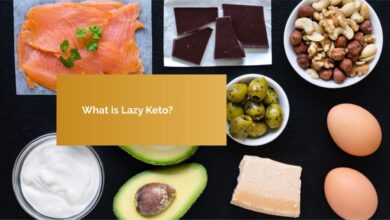8 Delicious Fruits to Sharpen Your Memory: Your Complete Guide to Brain-Boosting Nutrition

8 Delicious Fruits to Sharpen Your Memory: Your Complete Guide to Brain-Boosting Nutrition
Introduction
- The importance of memory in everyday life
- How diet influences cognitive health
- Why fruits are key to boosting memory
Understanding How Memory Works
- The Science Behind Memory Formation
- Key Brain Regions Involved in Recall
- Factors That Affect Memory and Recall
- Essential Nutrients for a Strong Memory
- Role of Antioxidants in Brain Health
- The Importance of Vitamins and Minerals
- Why Healthy Fats Matter
The Science of Fruit Consumption and Cognitive Function
- Glycemic Index and Slow-Release Energy
- Fiber Content and Steady Blood Sugar
- Protective Effects of Phytonutrients
8 Delicious Fruits to Sharpen Your Memory
- 1. Blueberries
- Anthocyanins and Their Neuroprotective Effects
- 2. Avocados
- Healthy Fats for Cognitive Performance
- 3. Strawberries
- Vitamin C and Neural Communication
- 4. Oranges
- Immunity and Brain Synergy Through Vitamin C
- 5. Grapes
- Resveratrol and Memory Preservation
- 6. Watermelon
- Hydration and Cognitive Clarity
- 7. Kiwi
- Antioxidants and Brain Cell Protection
- 8. Apples
- Quercetin and the Fight Against Oxidative Stress
Complementary Fruits That Deserve a Mention
- Pomegranates
- Raspberries
- Blackberries
- Cherries
Brain-Boosting Fruits Into Your Diet
- Smoothie Ideas and Recipes
- Fruit-Focused Breakfasts
- Smart Snacking for Steady Energy
- Timing and Pairing Fruits for Best Results
Complementary Lifestyle Habits for Improved Memory
Regular Exercise and Neural Plasticity
- Stress Management and Cognitive Performance
- The Role of Quality Sleep in Memory Consolidation
- Staying Hydrated for Optimal Brain Function
Practical Tips for Selecting and Storing Fruits
- Buying Seasonal vs. Off-Season Fruits
- Organic vs. Conventional Produce
- Best Storage Practices to Retain Nutrients
Common Myths About Fruits and Memory
- Myth 1: Fruits Contain Too Much Sugar for the Brain
- Myth 2: All Fruits Affect Memory Equally
- Myth 3: Fruit Juices Are Always as Good as Whole Fruits
Scientific Studies and Expert Opinions
- Latest Research on Fruit Intake and Cognitive Health
- Expert Recommendations for Fruit Consumption
Conclusion
FAQs
- Which fruit offers the quickest memory boost?
- Can I rely solely on fruits for brain health?
- Is there an ideal time of day to eat fruits for memory?
- How many servings of fruit should I aim for daily?
- Can fruit smoothies replace whole fruits in my diet?
8 Delicious Fruits to Sharpen Your Memory: Your Complete Guide to Brain-Boosting Nutrition
When was the last time you misplaced your phone or had trouble recalling a simple name? If it’s happening more often than you’d like, you might be wondering whether there’s a natural way to sharpen your memory. The good news is that certain fruits, with their abundance of antioxidants, vitamins, and healthy fats, can help you stay mentally sharp. If you’re curious about how a sweet, refreshing snack can double as a cognitive enhancer, stick around. In this in-depth guide, we’ll unveil eight delicious fruits that can make a real difference in your memory power.
Introduction

Memory is the invisible thread that ties our experiences, knowledge, and habits together. But did you know that what you eat might be as important as mental exercises when it comes to bolstering your recall? It turns out that a balanced diet plays a critical role in fortifying your brain cells. In particular, fruits are packed with compounds that can help protect your neurons and improve cognitive function.
So, why focus on fruit? They’re natural, widely available, and brimming with essential nutrients—making them the ideal addition to your brain-boosting toolkit. If you’re looking for high CPC (cost per click) keywords around improving memory, “brain-boosting diet” and “cognitive health” might pop up often. But let’s dive deeper than mere buzzwords and explore the science, benefits, and practical ways to enjoy fruit as part of your memory-strengthening routine.
read also:5 Fruits for Improving Brain Function: A Natural Approach to Boosting Your Cognitive Health
Understanding How Memory Works
The Science Behind Memory Formation
Memory formation is a complex process involving several regions in your brain, most notably the hippocampus and prefrontal cortex. These regions help you convert short-term impressions into long-term memories, manage recall, and process new information. The more efficiently these areas work, the better your memory will be.
Key Brain Regions Involved in Recall
- Hippocampus: Handles the conversion of short-term to long-term memories.
- Prefrontal Cortex: Essential for executive functions, which include memory recall and decision-making.
Factors That Affect Memory and Recall
Many elements influence your memory, from genetics and stress levels to sleep patterns and diet. While you can’t do much about your genes, you can control your daily habits, including what you eat. A nutrient-rich diet can significantly enhance your brain’s capacity to store and retrieve memories.
Essential Nutrients for a Strong Memory
Role of Antioxidants in Brain Health
Antioxidants serve as your brain’s bodyguards, fighting off harmful free radicals that cause oxidative stress. Think of oxidative stress as a slow burn in your brain cells that can lead to cognitive decline over time. By stocking up on antioxidants from fruits, you’re effectively turning on your brain’s self-defense mechanism.
The Importance of Vitamins and Minerals
Vitamins like vitamin C, vitamin E, and the B complex are critical for maintaining healthy brain function. For instance, vitamin C supports neurotransmitter production, whereas vitamin E helps defend cell membranes against oxidative damage. Minerals like potassium and magnesium also keep neural pathways well-tuned.
Why Healthy Fats Matter
Though typically associated with avocados, healthy fats like monounsaturated and polyunsaturated fats are vital for brain cell membranes. They help regulate the exchange of nutrients and waste products, ensuring that your neurons work at peak efficiency.
The Science of Fruit Consumption and Cognitive Function
Glycemic Index and Slow-Release Energy
The glycemic index (GI) determines how quickly a food can raise your blood sugar. For stable blood sugar—and thus stable brain power—fruits with a low GI are a wiser choice. This steady supply of glucose helps avoid the “sugar crash” that often follows high-GI foods.
Fiber Content and Steady Blood Sugar
Fruit fiber slows down digestion, which in turn stabilizes blood glucose levels. This steadiness is a boon for cognitive tasks that require sustained focus. When your brain isn’t dealing with energy spikes and crashes, it can devote more resources to memory consolidation.
Protective Effects of Phytonutrients
Fruits are loaded with phytonutrients—like anthocyanins and flavonoids—that enhance brain plasticity, improve synaptic connections, and reduce inflammation. Phytonutrients not only keep your memory intact but may also offer some protective benefits against age-related cognitive disorders.
8 Delicious Fruits to Sharpen Your Memory
At last, the spotlight is on the eight star fruits you’ve been waiting for. These aren’t just random picks but are backed by science for their memory-boosting potential. Let’s explore each one in detail.
1. Blueberries
Anthocyanins and Their Neuroprotective Effects
Blueberries might be tiny, but they’re loaded with anthocyanins—powerful antioxidants that cross the blood-brain barrier to help protect neurons from damage. Research suggests that blueberries can improve overall cognition, enhance memory recall, and even slow brain aging. If you’re looking for a fruit that packs a big punch, blueberries are a go-to choice.
2. Avocados
Healthy Fats for Cognitive Performance
Yes, avocado is technically a fruit, and its high content of monounsaturated fats makes it a standout for brain health. These healthy fats help regulate blood pressure, support healthy blood flow, and aid in neurotransmitter function. Avocados also offer vitamins K, E, and C, which collectively contribute to sharper memory and a more agile mind.
3. Strawberries
Vitamin C and Neural Communication
Strawberries often appear in discussions about antioxidant-rich foods, and for good reason. They’re high in vitamin C, which supports the production of neurotransmitters like dopamine and serotonin. Additionally, their anthocyanins help combat oxidative stress, which can impair memory if left unchecked. Whether you’re slicing them into a salad or blending them into a smoothie, strawberries are a sweet ally for your brain.
4. Oranges
Immunity and Brain Synergy Through Vitamin C
Oranges shine in the immunity department, but their vitamin C also performs wonders for your cognitive well-being. Vitamin C is instrumental in neurotransmitter synthesis and helps in forming collagen, which maintains the integrity of blood vessels that supply the brain. Think of it as a behind-the-scenes hero ensuring your neural networks stay nourished and efficient.
5. Grapes
Resveratrol and Memory Preservation
Grapes—particularly the red and purple varieties—harbor resveratrol, a compound credited with a host of health benefits, from heart protection to potential anti-aging effects. Resveratrol has shown promise in supporting brain health by enhancing blood flow and possibly slowing age-related cognitive decline. Snacking on grapes or tossing them into salads can be a simple yet effective memory booster.
6. Watermelon
Hydration and Cognitive Clarity
Watermelon is a summertime staple, but it’s also a boon for the brain thanks to its high water content. Hydration is crucial for mental clarity, and even mild dehydration can negatively affect memory and focus. Watermelon also contains vitamins A, B6, and C, making it a refreshing way to keep both your mind and body in top shape.
7. Kiwi
Antioxidants and Brain Cell Protection
Kiwi is often overlooked, but this fuzzy little fruit is brimming with vitamin C, vitamin E, and potassium. These nutrients work in tandem to protect brain cells from oxidative damage, regulate nerve impulses, and support mental energy. Kiwi is also relatively low in sugar, which is beneficial for maintaining stable blood sugar levels crucial to cognitive performance.
8. Apples
Quercetin and the Fight Against Oxidative Stress
They say an apple a day keeps the doctor away, and when it comes to memory, it might keep mental fog at bay as well. Apples contain quercetin, a flavonoid that combats oxidative stress and inflammation in the brain. The soluble fiber in apples also helps regulate blood sugar levels, ensuring your brain has a consistent energy supply.
Complementary Fruits That Deserve a Mention
While the above eight fruits steal the show, others deserve a nod for their memory-friendly properties.
- Pomegranates: Loaded with polyphenols that support blood flow to the brain.
- Raspberries: Another berry champion known for potent antioxidant levels.
- Blackberries: Similar to raspberries in their antioxidant punch.
- Cherries: Rich in anthocyanins that aid in reducing oxidative stress.
Incorporating Brain-Boosting Fruits Into Your Diet
Now that you know which fruits pack the biggest memory punch, how do you bring them into your daily meals?
Smoothie Ideas and Recipes
Blend a handful of blueberries, half an avocado, some spinach, and a splash of almond milk for a morning pick-me-up. The healthy fats from the avocado and the antioxidants from the berries offer a perfect start to your day.
Fruit-Focused Breakfasts
Top your oatmeal with sliced strawberries, bananas, and a drizzle of honey. Or whip up a fruit parfait by layering Greek yogurt, kiwi chunks, and granola.
Smart Snacking for Steady Energy
Keep your desk stocked with grapes or apple slices paired with peanut butter. This combo of fruit and protein helps stabilize blood sugar levels, sustaining your mental energy throughout a busy workday.
Timing and Pairing Fruits for Best Results
To avoid sugar spikes, consider enjoying fruit alongside foods containing protein or healthy fats. For instance, pair an orange with a handful of nuts. This synergy ensures a steady release of glucose and keeps your brain fueled over a longer period.
Complementary Lifestyle Habits for Improved Memory
Regular Exercise and Neural Plasticity
Engaging in aerobic activities like running or cycling boosts blood flow to your brain, encouraging the growth of new neural connections. Coupled with a fruit-rich diet, exercise lays the groundwork for robust cognitive function.
Stress Management and Cognitive Performance
Chronic stress can sabotage memory and focus. Techniques like meditation, deep breathing, or even a leisurely walk can help reset your stress levels, making it easier for you to absorb and recall information.
The Role of Quality Sleep in Memory Consolidation
During deep sleep, your brain sorts through the day’s experiences, forming new memories and discarding the irrelevant stuff. Without adequate rest, even the best diet can’t compensate for a lack of mental organization.
Staying Hydrated for Optimal Brain Function
Even mild dehydration can impair concentration and memory. Make water your go-to beverage, and remember that water-dense fruits like watermelon can also help you stay hydrated while supplying nutrients.
Practical Tips for Selecting and Storing Fruits
- Buying Seasonal vs. Off-Season Fruits: Seasonal fruits often have better flavor and higher nutrient content.
- Organic vs. Conventional Produce: If budget allows, consider buying organic versions of thin-skinned fruits like strawberries.
- Best Storage Practices: Keep berries in the fridge, but let avocados ripen at room temperature. Proper storage preserves vitamins and antioxidants.
Common Myths About Fruits and Memory
Myth 1: Fruits Contain Too Much Sugar for the Brain
Whole fruits come with fiber, antioxidants, and water, which all help regulate how quickly sugar enters your bloodstream. Unlike candy or sugary drinks, fruit sugar is less likely to cause dramatic spikes and crashes.
Myth 2: All Fruits Affect Memory Equally
Each fruit has its unique blend of vitamins, minerals, and phytonutrients. While they’re all beneficial, some stand out for their high antioxidant or healthy fat content—like blueberries or avocados.
Myth 3: Fruit Juices Are Always as Good as Whole Fruits
Juices often lack the fiber found in whole fruits, making them less effective at stabilizing blood sugar. Opt for whole fruits or smoothies with pulp whenever possible.
Scientific Studies and Expert Opinions
Latest Research on Fruit Intake and Cognitive Health
Emerging studies indicate that a diet rich in antioxidants—commonly found in berries—can slow cognitive decline. According to research published by reputable institutions, consistent fruit consumption correlates with better memory performance in various age groups.
Expert Recommendations for Fruit Consumption
Nutritionists generally suggest aiming for at least 1–2 servings of fruit daily, balanced with vegetables and whole grains. For an even stronger memory impact, focus on fruits rich in antioxidants, fiber, and healthy fats.
Conclusion
Fruits can be a game-changer when it comes to sharpening your memory. Each one—be it blueberries, avocados, or apples—brings a unique nutrient profile to the table, helping combat oxidative stress, regulate blood sugar, and support neural plasticity. Combined with a balanced lifestyle that includes exercise, stress management, and quality sleep, these fruits can genuinely shift the needle on your cognitive performance. Next time you’re craving a snack, remember that a sweet and satisfying piece of fruit could do more than just fill your stomach—it might also fortify your mind.
read also:7 Fruits That Boost Brain Power and Memory
FAQshttp://Wikipedia https://en.wikipedia.org › wiki › FAQ
- Which fruit offers the quickest memory boost?
Blueberries are often touted for their fast-acting benefits due to their high antioxidant content. You might notice enhanced focus and clarity relatively quickly, although long-term gains come from consistent consumption. - Can I rely solely on fruits for brain health?
While fruits are essential, they’re most effective when paired with a balanced diet, regular exercise, and other healthy lifestyle habits. No single food can single-handedly ensure optimal brain health. - Is there an ideal time of day to eat fruits for memory?
There’s no universally “perfect” time, but many people find it helpful to eat fruits alongside meals or as part of a balanced snack to regulate blood sugar and sustain mental energy throughout the day. - How many servings of fruit should I aim for daily?
Most experts recommend at least 1–2 servings of fruit each day. Focus on variety to get a broad range of antioxidants, vitamins, and minerals. - Can fruit smoothies replace whole fruits in my diet?
Smoothies can be a great way to consume multiple fruits at once, but they often lack the same level of fiber you’d get from eating whole fruits. If you make a smoothie, consider adding pulp, seeds, or leafy greens to retain more of the fruit’s natural fiber.




